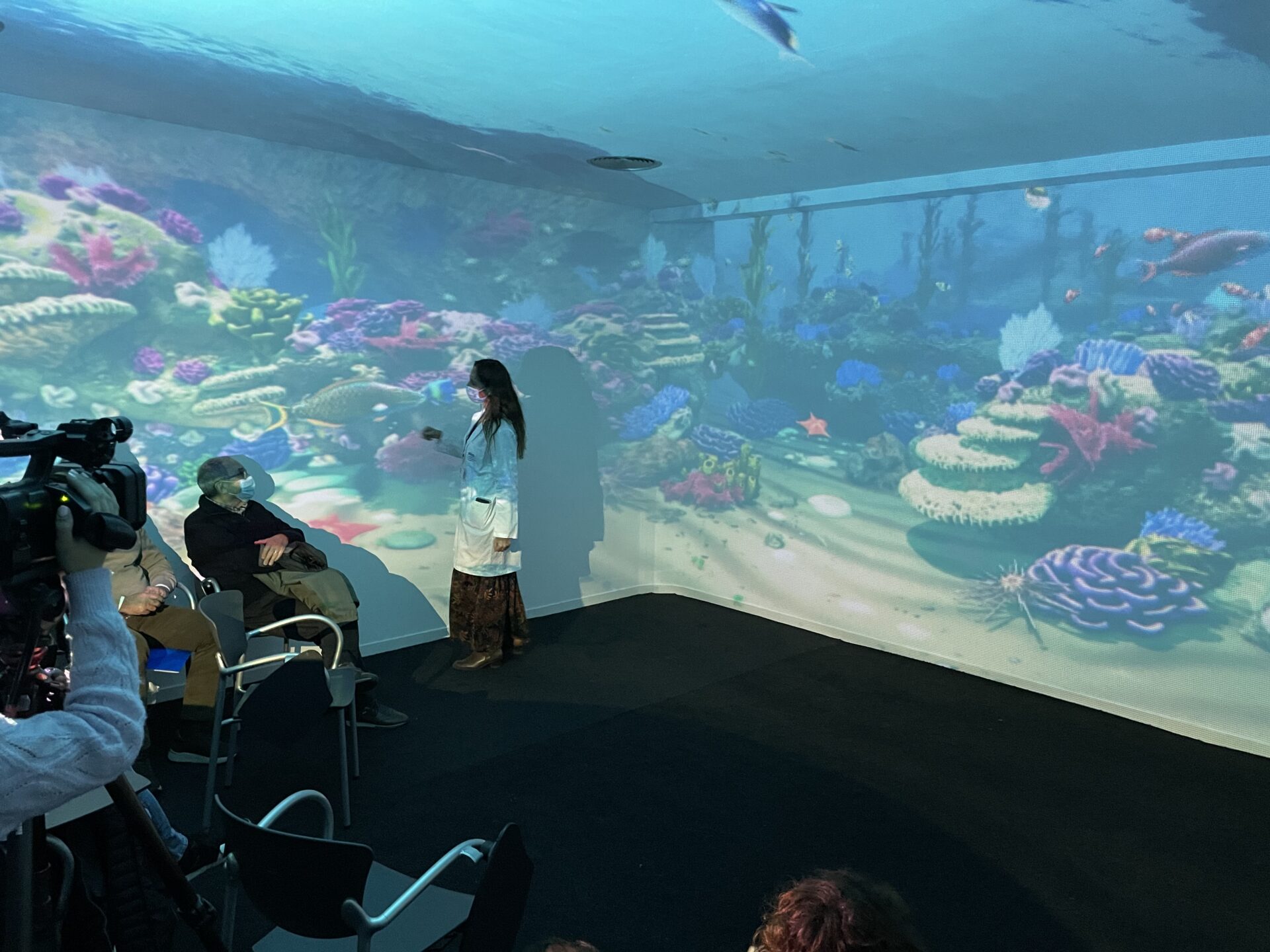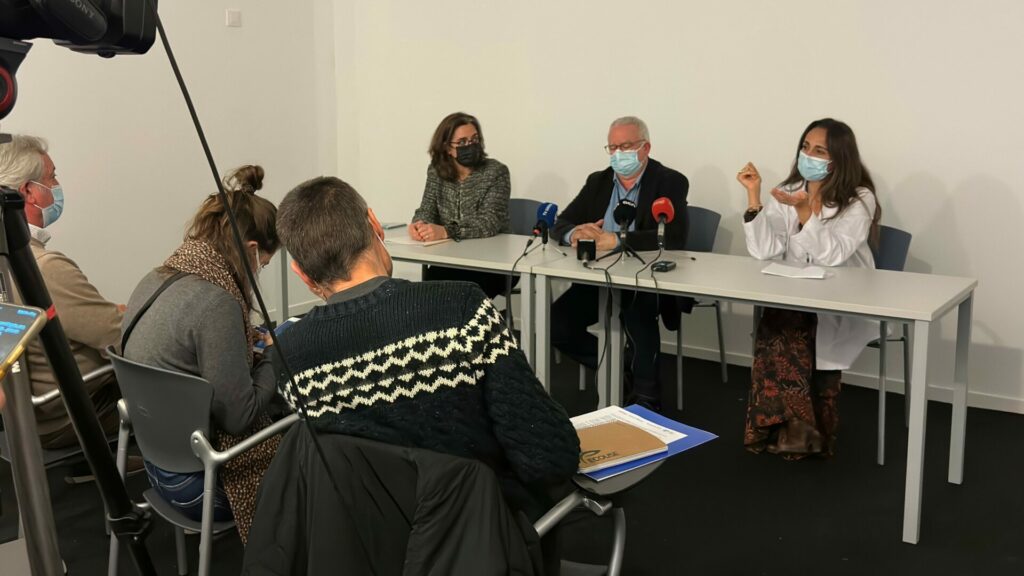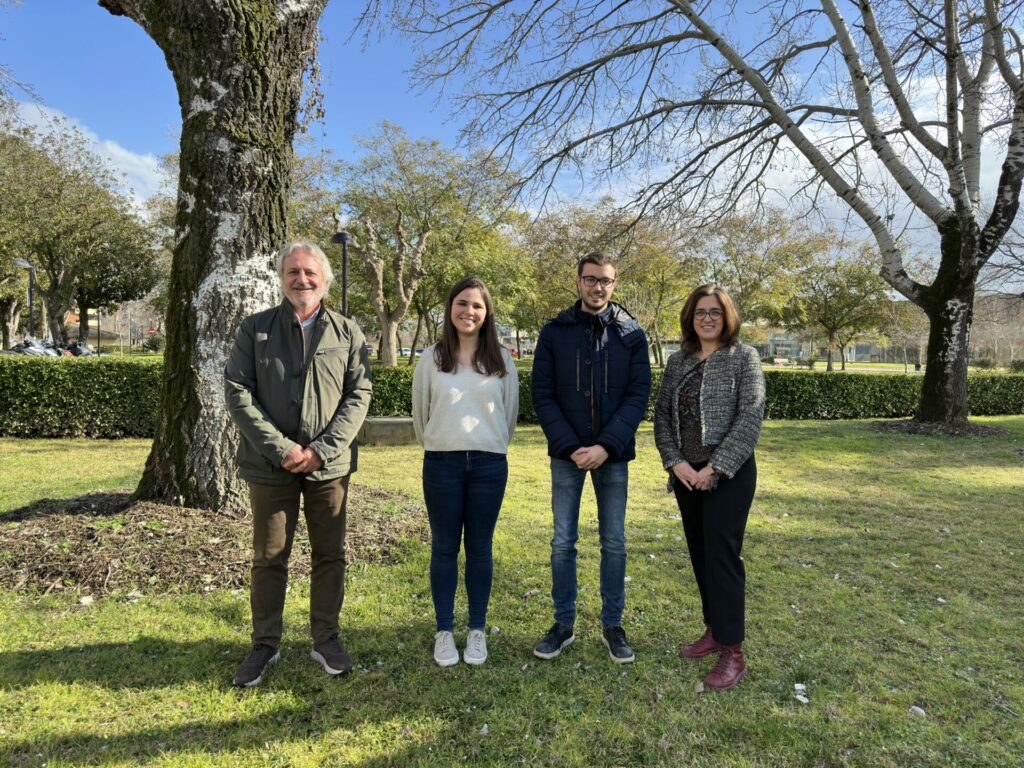
The Girona Biomedical Research Institute (IDIBGI), Granés Fundació and the Institut d'Assistència Sanitària (IAS) today presented the second Granés Fundació Grant. This second grant will promote a research project that will study the effectiveness of using the immersive virtual reality environment in the treatment of phobias in people with Autism Spectrum Disorder (ASD). The study will be carried out within the framework of the immersive virtual reality project that is being implemented at the Intellectual Disability Service of the IAS, at the Parc Hospitalari Martí i Julià in Salt. The project is aimed at treating the cognitive and behavioural difficulties of people with autistic conditions and intellectual disabilities and is designed from two perspectives: therapeutic and research.

On the one hand, the collaboration of Granés Fundació with the IAS has made it possible to have this new immersive virtual reality space, which has been baptised with the name ERVI Granés Fundació, and to acquire the technology necessary for its operation, developed by the startup Broomx. On the other hand, Granés Fundació and IDIBGI promote with this project the second Granés Fundació Grant, which will promote the study of the effectiveness of using the immersive virtual reality environment in the treatment of people with ASD.
Immersive virtual reality creates interactive computer-generated worlds that replace real-world sensory perceptions with digitally generated ones. The person can move in an artificial environment designed specifically for them, producing situations that can be therapeutically useful and almost impossible to recreate in real life. At the same time, the ERVI allows such close control over the stimuli presented that therapeutic strategies can be implemented with precision. In addition, one of the great benefits is that the use of psychotropic drugs can be significantly reduced.
Addressing phobias in autistic people
Phobias are common in autistic individuals; they are related to a wide range of triggers and can have a significant impact on the individual and their daily life. One treatment used for phobias in the general population, based on scientific evidence, is gradual exposure: the person imagines the feared situation while relaxed, and gradually progresses to live exposure to the phobia. Autistic people often experience difficulties with imagination and abstraction, and, in addition, the steps towards exposure to the real world can provoke excessively high levels of anxiety.
To address these limitations, the Granés Fundació grant will allow research into the efficacy of ERVI technology for 24 weeks in patients with ASD. This grant will incorporate a pre-doctoral researcher who will carry out the study in the IDIBGI Neurodevelopmental Disorders research group, led by the IAS neuropsychologist, Dr. Susanna Esteba-Castillo.
The study will be conducted on sixty participants with ASD and a diagnosis of specific phobia, thirty of whom will receive sessions in the new space. The new space will allow the phobic situation to be recreated with the design of personalised computer-generated scenes. In particular, behavioural, psychological and psychiatric changes will be analysed, and neuroimaging markers will also be analysed. A therapist will be present at the anxiety management sessions.
This will be the second grant awarded by Granés Fundació to a young IDIBGI researcher. The first grant was formalised in January 2021, with the aim of supporting the study of the degeneration that occurs in multiple sclerosis. The grant holder, Albert Miguela, joined IDIBGI's Neurodegeneration and Neuroinflammation research group, led by Dr. Lluís Ramió i Torrentà, head of Neurology at the Trueta Hospital in Girona and Santa Caterina Hospital at the Martí i Julià Hospital Park in Salt.

For the quality of life of people with disabilities
Most of the research carried out in the field of immersive virtual reality by pioneering centres in the world such as Cedars-Sinai Medical Center (Los Angeles) or Lucile Packard Children's Hospital (Stanford), among others, has demonstrated its effectiveness as a therapeutic tool in the treatment of different mental illnesses (stress disorder, anxiety, depression, etc.) and in cognitive rehabilitation in people in the process of ageing, with acquired brain damage or dementia, among others. From this starting point and with the aim of extending the support strategies for the people attended to at the Intellectual Disability Service of the IAS, a benchmark in the Girona Health Region, the service's professionals have designed a specialised programme aimed at people with ASD and intellectual disability using ERVI technology. This type of intervention will be progressively applied to other patient groups.
Within this framework, the Granés Fundació Immersive Virtual Reality Space is the result of the short and medium-term commitments of the IAS and Granés Fundació in relation to people with intellectual disabilities and/or mental disorders, with the common goal of improving the quality of life of people with disabilities. And in this sense, the objective of Granés Fundació is to collaborate with the specialised services of personal, health and social care, mainly addressed to people with intellectual disabilities and mental health problems and their families, with the will to provide them with the most appropriate support and services that contribute to enhance their personal autonomy, from a perspective of full achievement of rights.
Image 1: Demonstration led by Dr. Susanna Esteba and representatives of the technology company Broomx as an example for journalists.
Image 2: The director-manager of the Granés Foundation, Laura Masferrer, the head of the Intellectual Disability Service of the IAS, Ramon Novell, and the head of the IDIBGI Neurodevelopmental Disorders research group, Susanna Esteba, during the press conference.
Image 3: The president and director-manager of Granés Fundació, together with the two IDIBGI researchers who have received a Granés Fundació grant.